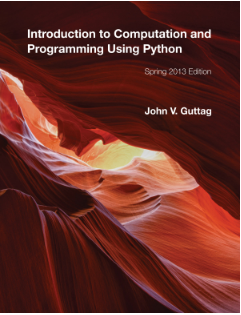ake full creative control of your web applications with Flask, the Python-based microframework. With the second edition of this hands-on book, you'll learn the framework from the ground up by developing, step-by-step, a real-world project created by author Miguel Grinberg. You'll learn the framework's core functionality, as well as how to extend applications with advanced web techniques such as database migration and web service communication.
-
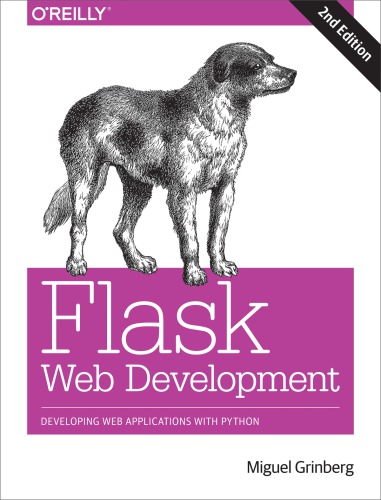
Flask Web Development Developing Web Applications with Python
Auteur: Miguel Grinberg
Flask Web Development Developing Web Applications with Python
- Auteur: Miguel Grinberg
- ISBN: 978-1-491-99173-2
-

Web API Development with Python A Beginners Guide using Flask and FastAPI
Auteur: Rehan Haider
Web API Development with Python A Beginners Guide using Flask and FastAPI
- Auteur: Rehan Haider
- ISBN:
-
-
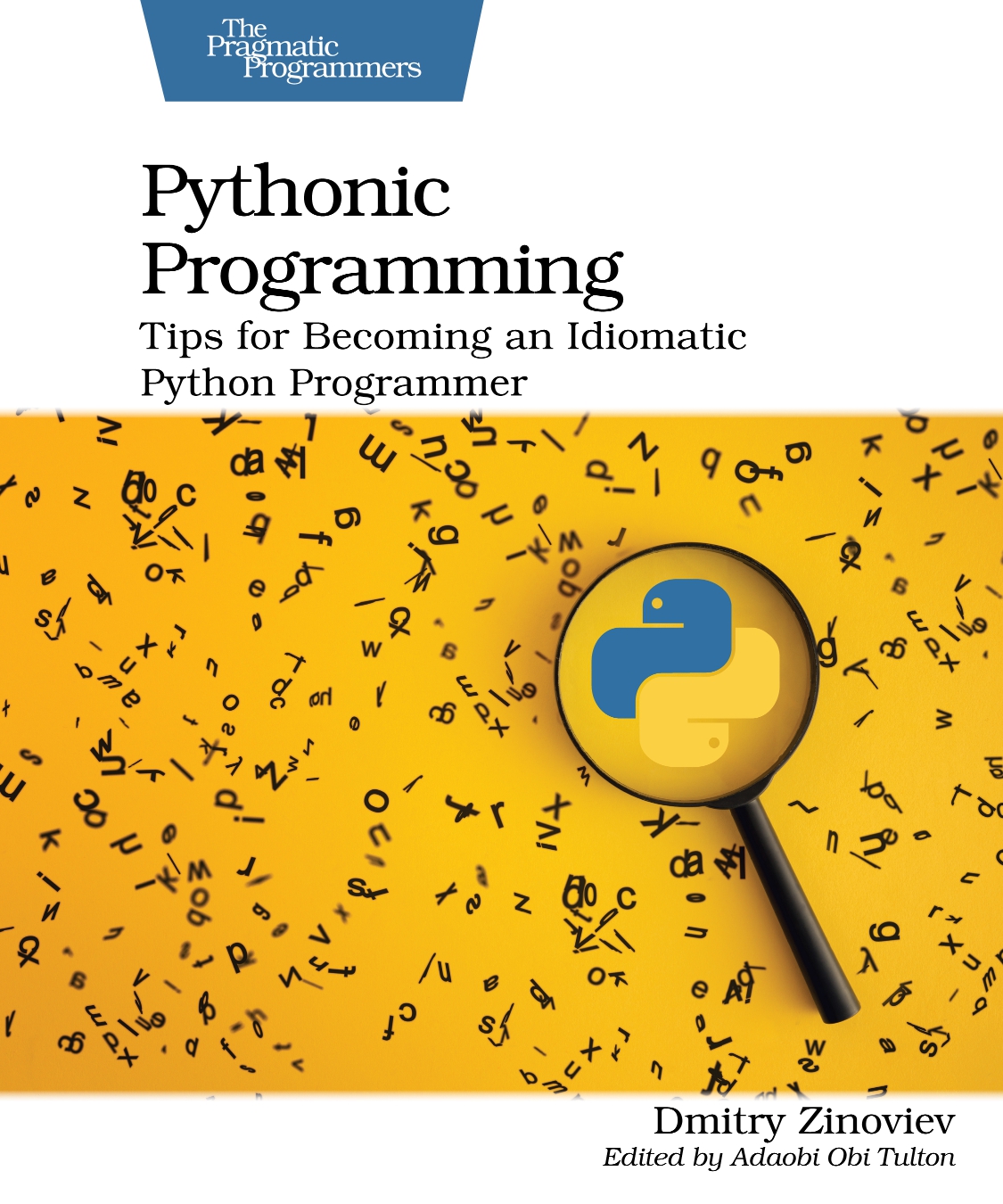
Pythonic Programming: Tips for Becoming an Idiomatic Python Programmer
Auteur: Dmitry Zinoviev
Pythonic Programming: Tips for Becoming an Idiomatic Python Programmer
- Auteur: Dmitry Zinoviev
- ISBN: 978-1-68050-861-1
-
-
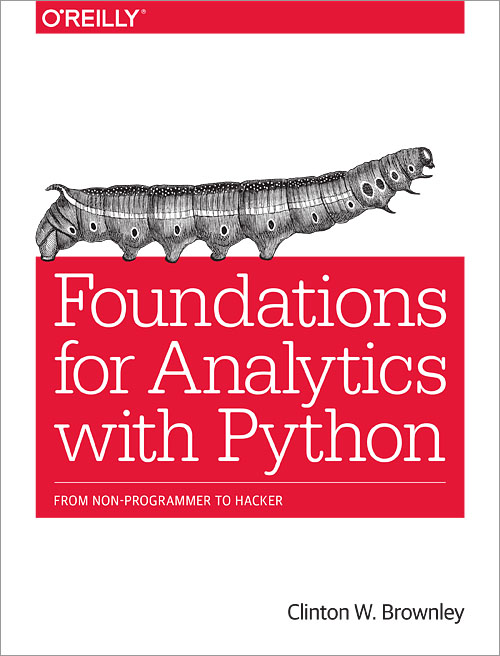
Foundations for Analytics with Python: From Non-Programmer to Hacker
Auteur: Clinton W. Brownley
Foundations for Analytics with Python: From Non-Programmer to Hacker
- Auteur: Clinton W. Brownley
- ISBN: 978-1-491-92253-8
If you’re like many of Excel’s 750 million users, you want to do more with your data—like repeating similar analyses over hundreds of files, or combining data in many files for analysis at one time. This practical guide shows ambitious non-programmers how to automate and scale the processing and analysis of data in different formats—by using Python.
-
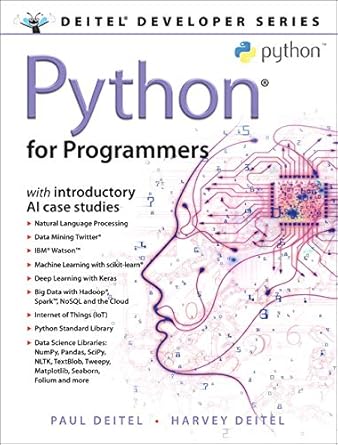
Python for Programmers
Auteur: Paul Deitel, Harvey Deitel
Python for Programmers
- Auteur: Paul Deitel, Harvey Deitel
- ISBN: 0135224330
-
-
Introduction to Computation and Programming Using Python
Auteur: John V. Guttag
Introduction to Computation and Programming Using Python
- Auteur: John V. Guttag
- ISBN: 978-0-262-51963-2
This book introduces students with little or no prior programming experience to the art of computational problem solving using Python and various Python libraries, including PyLab. It provides students with skills that will enable them to make productive use of computational techniques, including some of the tools and techniques of “data science” for using computation to model and interpret data. The book is based on an MIT course (which became the most popular course offered through MIT’s OpenCourseWare) and was developed for use not only in a conventional classroom but in in a massive open online course (or MOOC) offered by the pioneering MIT–Harvard collaboration edX. Students are introduced to Python and the basics of programming in the context of such computational concepts and techniques as exhaustive enumeration, bisection search, and efficient approximation algorithms. The book does not require knowledge of mathematics beyond high school algebra, but does assume that readers are comfortable with rigorous thinking and not intimidated by mathematical concepts. Although it covers such traditional topics as computational complexity and simple algorithms, the book focuses on a wide range of topics not found in most introductory texts, including information visualization, simulations to model randomness, computational techniques to understand data, and statistical techniques that inform (and misinform) as well as two related but relatively advanced topics: optimization problems and dynamic programming. Introduction to Computation and Programming Using Python can serve as a stepping-stone to more advanced computer science courses, or as a basic grounding in computational problem solving for students in other disciplines.
-
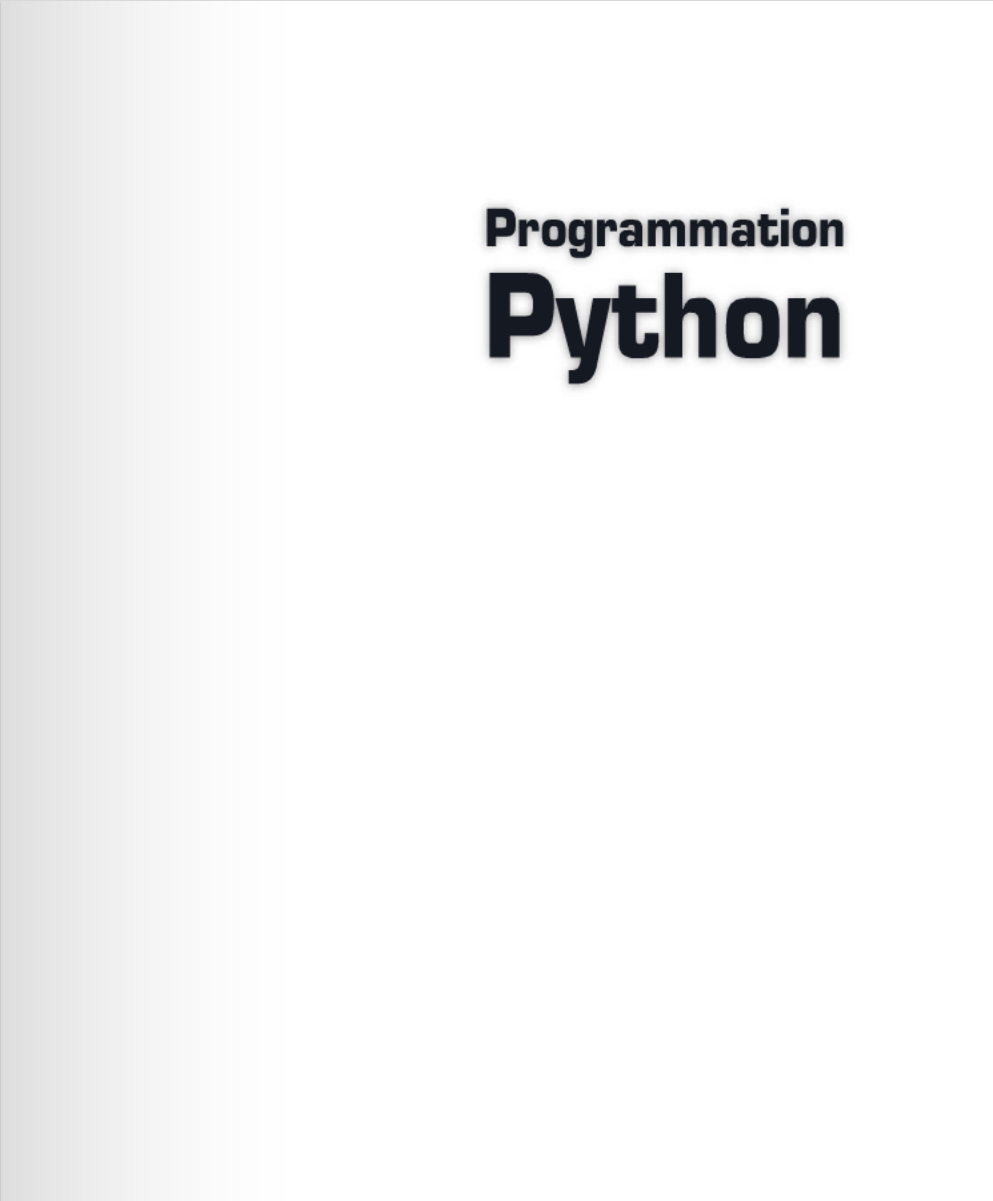
Programmation python
Auteur: Tarek Ziadé
Programmation python
- Auteur: Tarek Ziadé
- ISBN: 2-212-11677-2
-
-
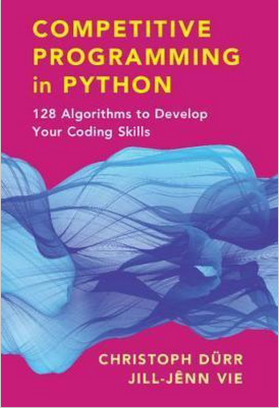
Competitive Programming in Python
Auteur: CHRISTOPH DÜRR, JILL-JÊNN VIE
Competitive Programming in Python
- Auteur: CHRISTOPH DÜRR, JILL-JÊNN VIE
- ISBN: 978-1-108-71682-6
-
-

Machine Learning Step-by-Step Guide To Implement Machine Learning Algorithms with Python
Auteur: Rudolph Russell
Machine Learning Step-by-Step Guide To Implement Machine Learning Algorithms with Python
- Auteur: Rudolph Russell
- ISBN: -
-
-

P y t h o n Crash Course 2nd Edition
Auteur: Eric Matthes
P y t h o n Crash Course 2nd Edition
- Auteur: Eric Matthes
- ISBN: 978-1-59327-928-8
-
-
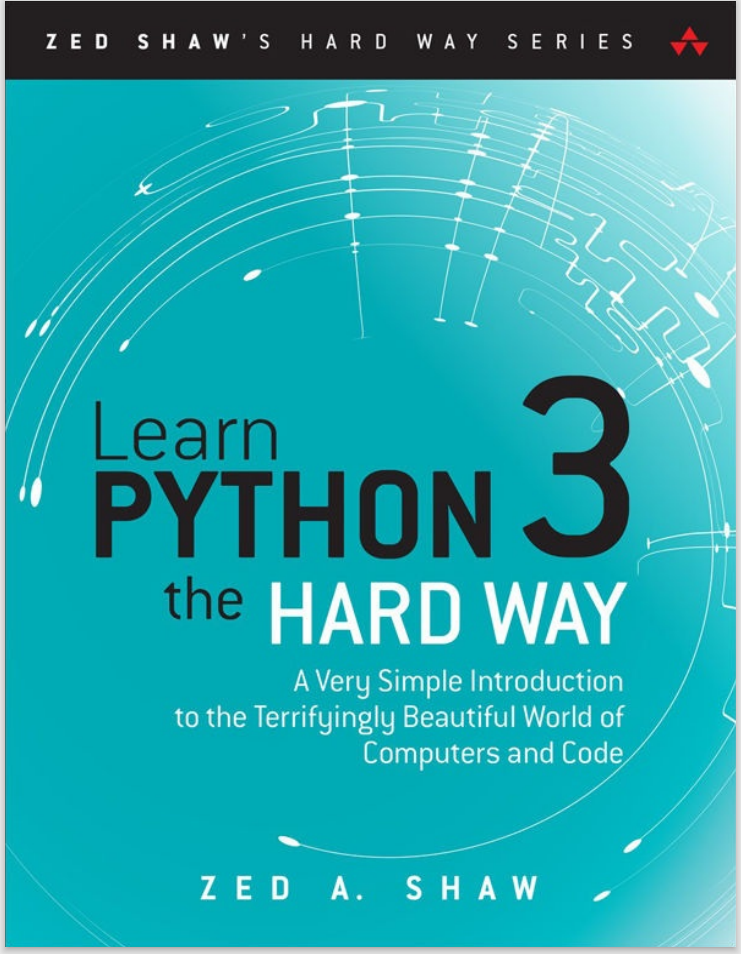
Learn Python 3 The Hard Way A Very Simple Introduction to the Terrifyingly Beautiful World of Computers and Code Zed A. Shaw
Auteur: -
Learn Python 3 The Hard Way A Very Simple Introduction to the Terrifyingly Beautiful World of Computers and Code Zed A. Shaw
- Auteur: -
- ISBN: 978-0-13-469288-3
-
-

Mastering Machine Learning with Python in Six Steps
Auteur: Bangalore, Karnataka, India
Mastering Machine Learning with Python in Six Steps
- Auteur: Bangalore, Karnataka, India
- ISBN: 978-1-4842-2865-4
-
